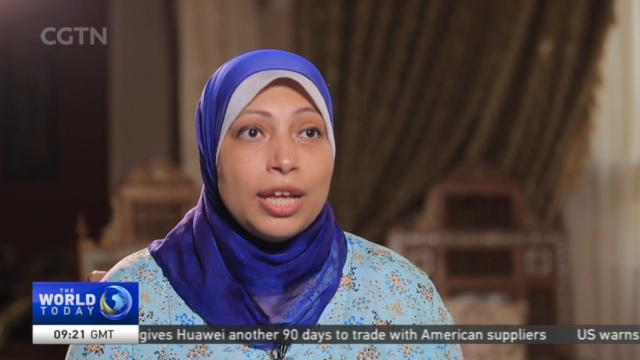
17:54, 20-Aug-2019
Sudan Politics: Interim government facing major economic challenges
Updated
21:04, 20-Aug-2019

A historic deal has been signed between Sudan's ruling military council and opposition leaders. It's a constitutional declaration that would pave the way to civilian rule. CGTN's Yasser Hakim looks at the challenges ahead for the leaders in Sudan to rebuild the country's shattered economy.
Economic growth at less than 2% down from 3% in 2018. Inflation higher than 60% and the Sudanese pound at a price of 70 per dollar. Numbers that don't make for a good reading. It's the effects of a decade long economic embargo from the west, corruption and political conflicts. But Sudan, ravaged by poverty has the resources to become an economic force in the continent.
SALLY FARID ASSISTANT PROFESSOR OF AFRICAN AFFAIRS, CAIRO UNIVERSITY "Sudan is not short of natural resources. It has vast areas of arable land for agriculture that can feed the whole continent. There is huge potential for investments in agriculture and livestock and the related agricultural industry. In addition to oil, despite the cessation from the south, there is potential for large oil reserves in north Sudan."
The political deal signed this week establishes a transitional council of members of the military and opposition forces and the formation of a government. The leadership's main mission now is to embark on economic reforms.
SALLY FARID ASSISTANT PROFESSOR OF AFRICAN AFFAIRS, CAIRO UNIVERSITY "The answer to all these problems is production. They have to pump alot of money and investments into projects to raise production levels, employ people and create income. Oil excavation is also a priority."
Khartoum has already received support in the form of huge investments from China as well as loans and grants from Saudi Arabia and the UAE.
YASSER HAKIM CAIRO, EGYPT "There were wild celebrations marking the end of the political conflicts. But what lies ahead is hard work a to rebuild an economy battered by years of political instability and to improve the lives of Sudanese people. YASSER HAKIM for CGTN, CAIRO."
SITEMAP
Copyright © 2018 CGTN. Beijing ICP prepared NO.16065310-3
Copyright © 2018 CGTN. Beijing ICP prepared NO.16065310-3